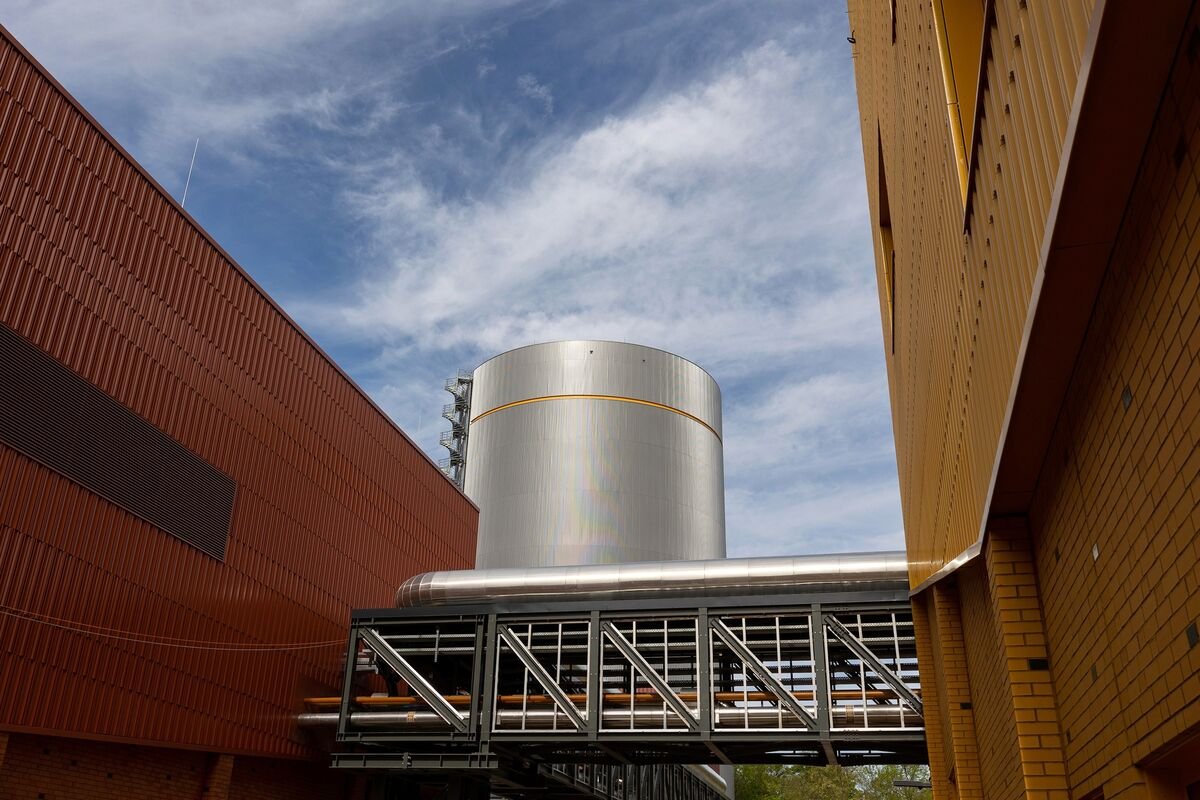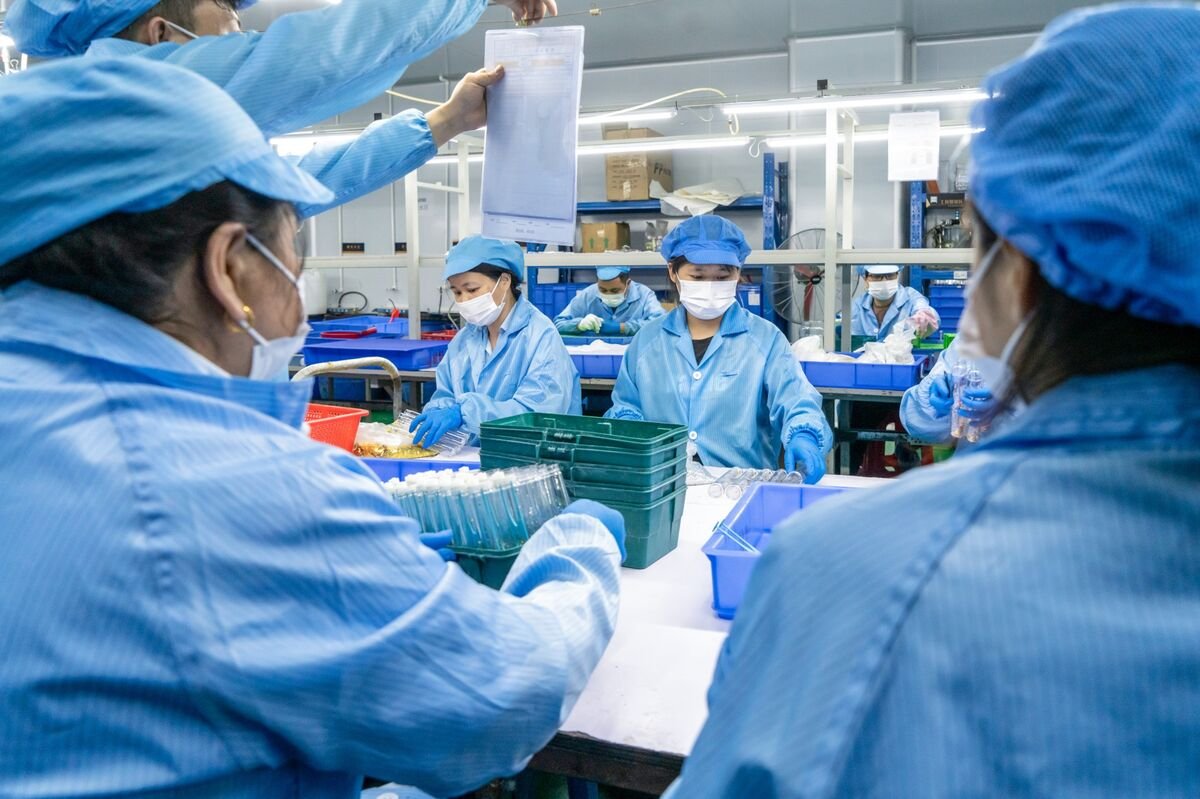Funding & Business
Investors Are Flocking To Fund Incontinence-Focused Startups

While they’re not favorite subjects for sharing personal experiences, incontinence and medical issues around urination are incredibly common.
Adult women are particularly vulnerable. It’s estimated that roughly half are affected to some degree, with prevalence rising sharply with age. Men are also at risk.
With senior populations on the rise across industrialized nations, treating and managing these conditions has proven increasingly costly as well. Global spending on adult diapers and other incontinence products is projected to reach $9.7 billion in 2025 and rise steadily in coming years. The market for treatment devices, currently estimated at over $4 billion annually, is expected to grow even faster.
Bottom line: For a topic that people mostly avoid bringing up in casual conversation, incontinence represents a huge addressable market. And startup founders and investors have taken note.
Funding rounds abound
Per Crunchbase data, more than a dozen companies tied to incontinence and urinary health have raised funding rounds in 2024 and 2025. Our sample cohort, listed below, has collectively raised over $500 million to date.
It’s a diverse lineup, both in geography and specialization, although a majority are medical device startups.
In this area, the most recent big round went to ProVerum Medical, a startup developing a stent to alleviate lower urinary tract symptoms associated with benign prostatic hyperplasia (BPH), a noncancerous enlargement of the prostate gland that occurs as men age. The Dublin-based company closed on $80 billion in Series B funding this week.
Neuromodulation
In terms of total funding to date, the leading name on our list is Neuspera Medical, developer of a neuromodulation therapy for urinary urge incontinence, an overactive bladder symptom it says affects 1 in 5 U.S. women. San Jose-based Neuspera has raised $135 million in known funding to date, per Crunchbase data.
Neuspera is also progressing on the commercialization front. This summer, it received FDA approval for a miniaturized neurostimulator implant said to be effective in reducing or eliminating urinary leaks.
Valencia Technologies, based in Valencia, California, is also applying neuromodulation technology to treat bladder dysfunction. The 14-year-old company raised up to $35 million in a financing earlier this year to pursue commercializing the eCoin, a coin-sized neurostimulator implanted under the skin near the ankle. The device delivers periodic stimulation to the tibial nerve with the aim of reduced episodes of incontinence.
Seed and early stage
We’re also seeing smaller rounds at seed and early stage for startups tackling incontinence.
Two-year-old Axena Health, for instance, closed on a $9.4 million Series A last year for a system for women to train and strengthen their pelvic floor muscles. And Minnesota-based Flyte closed on seed funding last year for an in-home treatment for incontinence and weakened pelvic floor muscles.
On the consumer products side, Hazel has also raised multiple seed financings, per Crunchbase data, to scale its offerings of disposable leakproof briefs.
A new reason not to talk about incontinence
While it will inevitably take time for the current pipeline of funded startups to scale enough to measurably impact the problems they’re addressing, the hope is that they will eventually prevail.
If all works out exceedingly well, the expectation is that incontinence will still be a subject people don’t talk about much. However, it will not be because they’re embarrassed, but rather because they don’t have to worry about it.
Related Crunchbase query:
Illustration: Dom Guzman
Stay up to date with recent funding rounds, acquisitions, and more with the
Crunchbase Daily.
Funding & Business
Indonesia Protests: Prabowo Calls for Firm Action as Unrest Escalates

Indonesian President Prabowo Subianto ordered the police and military to take firm action against unlawful acts, following days of violent protests over rising living costs and inequality that have left at least three people dead, buildings torched, and officials’ homes looted.
In a televised address on Sunday, Prabowo instructed security forces to crack down on the unrest, which has escalated into some of the worst street protests since he took office 10 months ago.
Funding & Business
German Gas Reserves Reach Key 70% Threshold, Easing Winter Risks

Germany has filled its gas reserves to a critical storage level two months ahead of schedule, easing fears about winter heating shortages that only recently fueled talk of potential government intervention.
As of Friday, Germany’s gas storage sites were 70% full — a threshold the government aimed to reach by Nov. 1. Earlier this year, slow injections rattled Europe’s gas market as traders saw little incentive to stockpile. But falling summer gas prices have since spurred a rapid build-up.
Funding & Business
China Factory Activity Slump Continues Despite US Tariff Relief

China’s factory activity remained stuck in contraction in August, as a government crackdown on price wars holds back production offset the boost for manufacturers of the US’ extended trade truce.
Source link
-
Tools & Platforms3 weeks ago
Building Trust in Military AI Starts with Opening the Black Box – War on the Rocks
-

 Ethics & Policy1 month ago
Ethics & Policy1 month agoSDAIA Supports Saudi Arabia’s Leadership in Shaping Global AI Ethics, Policy, and Research – وكالة الأنباء السعودية
-

 Events & Conferences3 months ago
Events & Conferences3 months agoJourney to 1000 models: Scaling Instagram’s recommendation system
-

 Business2 days ago
Business2 days agoThe Guardian view on Trump and the Fed: independence is no substitute for accountability | Editorial
-

 Jobs & Careers2 months ago
Jobs & Careers2 months agoMumbai-based Perplexity Alternative Has 60k+ Users Without Funding
-

 Funding & Business2 months ago
Funding & Business2 months agoKayak and Expedia race to build AI travel agents that turn social posts into itineraries
-

 Education2 months ago
Education2 months agoVEX Robotics launches AI-powered classroom robotics system
-

 Podcasts & Talks2 months ago
Podcasts & Talks2 months agoHappy 4th of July! 🎆 Made with Veo 3 in Gemini
-

 Podcasts & Talks2 months ago
Podcasts & Talks2 months agoOpenAI 🤝 @teamganassi
-

 Jobs & Careers2 months ago
Jobs & Careers2 months agoAstrophel Aerospace Raises ₹6.84 Crore to Build Reusable Launch Vehicle





















